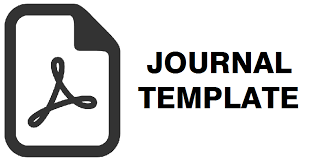The Concept of Love for the Homeland from the Perspective of KH Hasyim Asy’ari and Relevance with Social Studies Education
DOI:
https://doi.org/10.35719/hrtg.v3i2.80Keywords:
Love for the Homeland, KH. Hasyim Asy’ari, Social StudiesAbstract
The flow of information exchange in the era of globalization that is easily accessed by the young generation makes it easy to accept foreign cultures without being selective and forgetting their own culture. This phenomenon is a factor in weakening the level of love for the student's homeland. Efforts to foster an attitude of love for the homeland in the school environment are by instilling the values of love for the homeland of KH Hasyim Asy'ari through social studies subjects. This research aims to (1) describe the concept of love for the homeland from the perspective of KH Hasyim Asy'ari, (2) describe the relevance of the concept of love for the homeland from the perspective of KH Hasyim Asy'ari with social studies education. The research method used a qualitative approach to the type of library research. Collecting data in this research used the documentation method. Then the data were analyzed by content analysis—the data validity technique used theoretical triangulation. The results of the study show that (1) the concept of love for the homeland from the perspective of KH Hasyim Asy'ari is called Hubbul within minal iman which contains religious values and nationalism values that are implied in the Jihad Resolution as proof of KH Hasyim Asy'ari's commitment and form of nationalism, (2) the relevance of the concept of love for the homeland from the perspective of KH Hasyim Asy'ari with social studies education, which is relevant to the objectives of social studies learning and relevant to the content of the social studies curriculum for VIII Grade in KD 3.4. Analyzing chronology, change, and spatial continuity (geographical, political, economic, educational, social, cultural) from the colonial period to the growth of the national spirit and IX Grade in KD 3.4 Analyzing the chronology, change and continuity of space (geographic, political, economic, educational, social, cultural) from the beginning of independence to the front of reform.
References
Ali Maschan Moesa. (n.d.). Nasionalisme kiai : konstruksi sosial berbasis agama / Ali Maschan Moesa ; editor, Fuad Mustafid | OPAC Perpustakaan Nasional RI.Retrieved December 25, 2022, from https://opac.perpusnas.go.id/DetailOpac.aspx?id=540986
Amalia, S., Rofifah, U., & Zuhri, A. F. (2020). MENAMPILKAN SIKAP CINTA TANAH AIR PADA ERA 4.0. JURNAL ILMIAH EDUKATIF, 6(1), 68–75. https://doi.org/10.37567/JIE.V6I1.109
Amir Hamzah. (2020). METODE PENELITIAN & PENGEMBANGAN (Research & Development) Uji Produk ... -Dr. Amir Hamzah, M.A.
Asy’ari, H. K. M. H. (2020). Terjemah At-Tibyaan Fin Nahyi ’An Muqatha’Atil Arham Wal Aqaarib Wal Ikhwan
Atika, N. T., Wakhuyudin, H., & Fajriyah, K. (2019). PELAKSANAAN PENGUATAN PENDIDIKAN KARAKTER MEMBENTUK KARAKTER CINTA TANAH AIR. Mimbar Ilmu, 24(1), 105–113. https://doi.org/10.23887/MI.V24I1.17467
Bahri. (2008). Bahri. (2008). Konsep Dan Definisi Konseptual. Jakarta: PT Raja Grafindo Persada.
Baso, A. (2017). Baso, Ahmad, Agus Sunyoto, dan Rijal Mumazziq. (2017). KH Hasyim Asy’ari : Pengabdian Seorang Kyai Untuk Negeri. Jakarta: Museum Kebangkitan Nasional.
Bustami, A. L. dan T. S. T. (2015). Bustami, Abdul Latif dan Tim Sejarawan Tebuireng. (2015). RESOLUSI JIHAD PerjuanganUlama: Dari Menegakkan Agama Hingga Negara. Jombang: Pustaka Tebuireng.
Fakturmen, F., & Arif, M. Z. (2020). Pengaruh KH. Hasyim Asy’ari dalam Membangun Serta Menjaga Nusantara dan Kemaslahatan Islam Dunia. JURNAL INDO-ISLAMIKA, 10(1), 35–50. https://doi.org/10.15408/IDI.V10I1.17510
Ikhsan, M. A. jamaliddin. (2017). NILAI -NILAI CINTA TANAH AIR DALAM PERSPEKTIF AL-QUR’AN. Jurnal Ilmiah PendidikanPancasila Dan Kewarganegaraan, 2(2), 108–114. https://doi.org/10.17977/UM019V2I22017P108
Kementerian Pendidikan dan Kebudayaan. (2018). Enhanced Reader.khuluq, lathiful. (2000). Fajar kebangunan ulama : Biografi K.H. Hasyim Asy’ari / Lathiful Khuluq; penerjemah: Muh. Shaleh Isre | Perpustakaan UIN Sultan Syarif Kasim Riau.
Mulyasa H. E. (2014). Pengembangan dan implementasi kurikulum 2013 / H. E. Mulyasa ; editor, Anang Solihin Wardan | OPAC Perpustakaan Nasional RI.
Nurmantyo. (2016). Panglima TNI Sebut Konflik Masa Depan Terkait Energi.
Sapriya. (2009). Pendidikan IPS (Konsep dan Pembelajaran). Rosda.SRI HARINI DWIYATMI. (2012). Pendidikan Kewarganegaraan Pustaka Pelajar. https://pustakapelajar.co.id/buku/pendidikan-kewarganegaraan/
trianto. (2012). Lokasi: Model pembelajaran terpadudalam teori dan praktek/ Trianto.
tribunnews. (2020). Ketika Top 6 Puteri Indonesia 2020 Tidak Hafal Pancasila, Finalis Asal Sumatera Barat Tuai Perhatian.
Wijaya Kusuma, abd kholiq. (2017). Cinta tanah air / Wijaya Kusuma ; penyunting, Abd. Kholiq |OPAC Perpustakaan Nasional RI.
Dhofier. (2011). Tradisi Pesantren : Studi Pandangan Hidup Kyai dan Visinya Mengenai Masa Depan Indonesia. | Perpustakaan FIS.
Zuhairi Misrawi, 1977-. (2010). Hadratussyaikh Hasyim Asy’ari : moderasi, keumatan, dan kebangsaan. Penerbit Buku Kompas.
Downloads
Published
How to Cite
Issue
Section
License
Copyright (c) 2022 heritage

This work is licensed under a Creative Commons Attribution-ShareAlike 4.0 International License.





